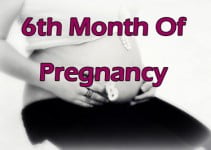Women experience an overwhelming feeling of happiness when they are pregnant, but they can also experience some health problems.
It is common for many health problems to arise when the growing baby causes changes in different biological processes inside the body. One of the problems that affect pregnant women commonly is constipation. The information below will tell you about constipation in pregnancy.
Constipation happens when the intestines or bowels are not functioning smoothly. This results in difficulty when one has to eliminate fecal matter because the stool is not soft. There can be many reasons why bowel movement might be painful during pregnancy.
Causes of Constipation in Pregnancy
The following are some of the main reasons why you might experience constipation during pregnancy:
Growing Fetus: Your tummy will start to protrude as the months pass on in the pregnancy to put an excessive amount of strain on your lower intestinal muscles. When this happens, it can be difficult for the intestines to encourage stool movement. This will eventually cause an irregular bowel movement.
Hormone Imbalance: The progesterone and estrogen hormones are disturbed during pregnancy. Their production can increase excessively and have a negative effect on different bodily functions such as bowel movement and digestion system.
The fluctuation in the hormone levels will slow down bowel movement and lead to constipation in pregnancy [1].
Not Enough Physical Activity: It is normal for women to do less physically during pregnancy because of the increased weight, but you should not avoid exercise completely. Lack of activities or exercise can lead to infrequent bowel movement.
Thyroid Problems: Your bowel function can slow down if you have thyroid problems during pregnancy. Thyroid problems, such as hypothyroidism, can trigger a reduction in thyroid hormones production and cause constipation [2].
Supplements: Like other pregnant women, you will need a lot more nutrition to satisfy the demands of the developing fetus. During this time, doctors usually prescribe calcium, iron, or vitamin supplements to help enhance a healthy diet.
These are recommended to help, but can also cause problems. For instance, an excessive amount of calcium or iron can disturb your regular bowel function and cause constipation [3].
Tips to Prevent Constipation in Pregnancy
Change your diet
If you are having digestion problems, you should think about changing your diet. To avoid further problems, you need to consult your doctor or nutritionist about the types of foods to eat and avoid.
A diet with a lot of fiber can help in healthy digestion as well as in eliminating constipation.
Increase fluid
Doctors usually recommend ten to twelve glasses of water for pregnant women to ensure that they are not suffering from constipation. This amount of water or fluid will aid in eliminating bodily wastes and in smooth digestion.
It is important to stay hydrated to make sure that your bowel movement is smooth during pregnancy. In addition to the water, you can increase your intake of fresh fruit and vegetable juices.
Eat smaller meals
You will have digestive health problems if you are consuming large amounts of food at once. This can further complicate a constipation problem. Even though your appetite might increase during pregnancy, you need to avoid large meals at one time.
The smaller meals will help you to avoid constipation once and for all, as well as aid in preventing problems such as gas and bloating.
Avoid large amounts of iron
Excess amount of iron supplements can lead to constipation in pregnancy. When pregnant, you will be advised to follow a diet that is rich in iron to maintain adequate levels in your body.
If you want to ensure that this will not cause constipation throughout pregnancy, you can reduce the iron dosage to restore regular bowel movement [4].
Exercise regularly
Lack of exercise or physical activity and laziness can lead to constipation during pregnancy. Although you will feel fatigued and might face many hormonal and physical changes, it is still important to exercise during pregnancy.
Walking daily or doing any other light exercises for twenty to thirty minutes can be effective in promoting a stress-free bowel movement. In addition, exercising regularly through the time of pregnancy can alleviate constipation symptoms immensely.
Stool softeners
Doctors always advise that expecting mothers should get recommendations to take any form of laxatives because they can flush essential nutrients and vitamins from the body. But, it is not harmful to use stool softeners. These are not dangerous for the developing fetus and can prevent constipation because they help to make it easier to pass stool.
When you are constipated or your bowel movement is strained, you should address the matter as early as possible. You should not use the chemical-based colon cleansers or laxatives to treat constipation in pregnancy because the above-mentioned remedies usually work effectively to restore a normal bowel function.
You should contact your doctor immediately to get a prescribed treatment if you are not getting any relief for your constipation problem.
References
- Is A Hormone Imbalance Causing Your Gut Issues? Here’s How Estrogen Is Linked To Constipation -By Bindiya Gandhi, M.D. [Link]
- Hypothyroidism is a rare cause of isolated constipation: 5-year review of all thyroid tests in a pediatric gastroenterology office [Link]
- Why Your Calcium is Causing Constipation (+ What to Do About it!) [Link]
- How to Avoid Constipation When Taking Iron Tablets [Link]



